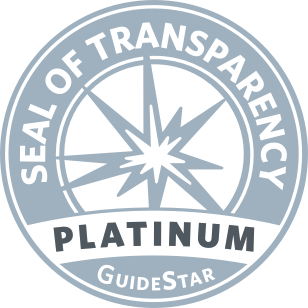Stargardt Disease Research Advances
Research News
Recent developments in research on Stargardt disease.
SPLICEBIO HAS DOSED THE FIRST PERSON IN A PHASE 1/2 CLINICAL TRIAL FOR STARGARDT DISEASE PROTEIN SPLICING THERAPY
SpliceBio, a genetic medicines company developing protein splicing therapies for inherited retinal diseases and other conditions, has launched a Phase 1/2 clinical trial for SB-007, its emerging protein splicing therapy for Stargardt disease caused by ABCA4 mutations. Known as ASTRA, the trial is scheduled to begin in the first half of 2025. Details of the trial are forthcoming. ASTRA is the first FDA-authorized clinical trial for a protein splicing therapy.
VEONGEN LAUNCHES CLINICAL TRIAL FOR MRNA TRANS-SPLICING GENE THERAPY FOR STARGARDT DISEASE
VeonGen, a company developing genetic therapies for eye diseases, has received authorization from the US Food & Drug Administration (FDA) to launch a Phase 1/2 clinical trial for VG801, an emerging mRNA trans-splicing gene therapy for people with Stargardt disease and other retinal diseases caused by mutations in the gene ABCA4. The company will also seek authorization from the European Medicines Agency to conduct the clinical trial at sites in the EU. Additional details for the planned clinical trial are forthcoming.
ALKEUS REPORTS ENCOURAGING RESULTS IN CLINICAL TRIAL FOR DRUG DESIGNED TO REDUCE TOXINS IN RETINA
The biotech company Alkeus is conducting a multi-center Phase 2 clinical trial for a drug (ALK-001) that targets the toxic build-up in the retina that is thought to cause degeneration and vision loss. The therapy slowed lesion growth by about 30 percent. The emerging therapy is a modified form of vitamin A, which when metabolized in the retina, results in much less waste. Scientists developed ALK-001 by replacing hydrogen atoms in vitamin A with deuterium. Known as deuterated vitamin A, it “burns cleaner” than the natural form. Deuterium is a safe, naturally occurring, stable form of hydrogen, which is present in the human body.
BELITE BIO CONDUCTING PHASE 3 CLINICAL TRIAL OF TREATMENT TO SLOW DISEASE PROGRESSION
The San Diego-based biopharmaceutical company Belite Bio is enrolling adolescent patients (ages 12-18) with Stargardt disease in DRAGON, its Phase 3 clinical trial for Tinlarebant, an emerging oral medication designed to slow disease progression and vision loss. Tinlarebant is designed to inhibit a protein known as retinol binding protein 4 (RBP4) to reduce the uptake of vitamin A to the retina, thereby decreasing the production and accumulation of toxic vitamin A byproducts, which are the hallmark of Stargardt disease.
ASCIDIAN LAUNCHES CLINICAL TRIAL FOR RNA EDITING TREATMENT FOR STARGARDT DISEASE
Ascidian Therapeutics has received authorization from the US Food & Drug Administration to launch a Phase 1/2 clinical trial for ACDN-01, the company’s RNA editing therapy for people with Stargardt disease, an inherited form of macular degeneration caused by mutations in the ABCA4 gene.
Unlike genetic therapies that deliver an entire healthy gene (DNA) to replace the mutated gene, or which edit DNA, ACDN-01 re-writes RNA, the genetic message derived from DNA that cells read to make proteins. Healthy proteins are essential to the survival and function of all cells in the body, including those of the retina. ACDN-01 specifically re-writes RNA exons, the regions where mutations are most likely to occur for the ABCA4 gene. Ascidian estimates that ACDN-01 can address mutations in ABCA4 for a significant percentage of people with Stargardt disease because the editing replaces a large number of exons, all at once.
NANOSCOPE TO LAUNCH PHASE 3 CLINICAL TRIAL OF OPTOGENETIC THERAPY FOR STARGARDT DISEASE
Nanoscope Therapeutics, a biotechnology company developing gene therapies for retinal degenerative diseases, has recevied authorization for the FDA to launch a Phase 3 clinical trial trial of its optogenetic therapy for people with advanced Stargardt disease. Some patients in Phase 2 had rudimentary vision improvements after receiving the emerging treatment. Known as MCO-010, the optogenetic therapy is designed for people who have lost most or all of their photoreceptors, the cells that make vision possible. The treatment, a small drop of liquid delivered by an intravitreal injection, uses a human-engineered virus to deliver copies of the Multi-Characteristic Opsin (MCO) gene to bipolar cells — cells that don’t normally sense light but often survive after photoreceptors are lost to advanced retinal disease.
STARGARDT DISEASE NATURAL HISTORY STUDY HELPING PREPARE FOR FUTURE CLINICAL TRIALS
The Foundation Fighting Blindness completed a $6 million natural history study for people affected by Stargardt disease. Known as ProgSTAR, the study has three primary goals: 1) Determine the best outcome measures to accelerate evaluation of emerging treatments in clinical trials, 2) better understand disease progression for selecting future clinical trial participants, and 3) identify potential participants for forthcoming clinical trials. The study has enrolled 365 patients in 10 international clinical centers.
ASTELLAS CONDUCTING CLINICAL TRIAL OF COMPLEMENT INHIBITOR FOR STARGARDT DISEASE
ASTELLAS is conducting a Phase 2 clinical trial its C5 complement inhibitor designed to slow the progression of Stargardt disease. In many retinal diseases, the complement system (part of the innate immune system) is overactive, thereby exacerbating retinal degeneration and accelerating vision loss.
OCUGEN LAUNCHES PHASE 2/3 CLINICAL TRIAL FOR ITS MODIFIER GENE THERAPY FOR STARGARDT DISEASE
Ocugen has launched its Phase 2/3 GARDian3 clinical trial for OCU410ST, a modifier gene therapy candidate being developed for Stargardt disease, as a one-time treatment for life. Slowing of disease legions (areas of cell loss) were reported in the Phase 1/2 clinical trial for the treatment.
OCTOBER 2025




